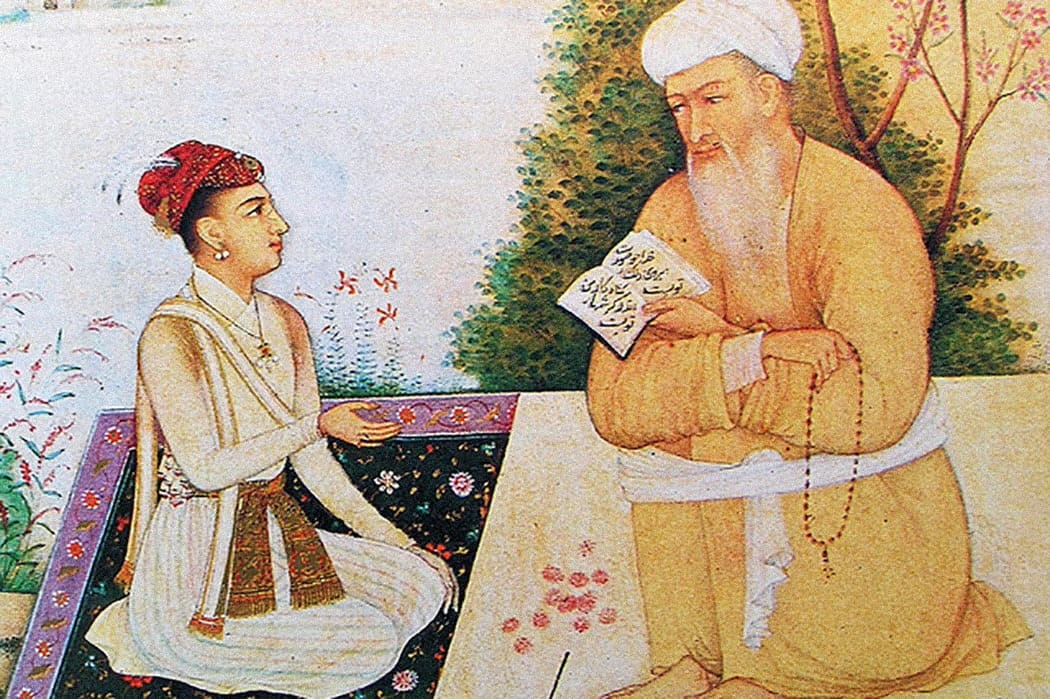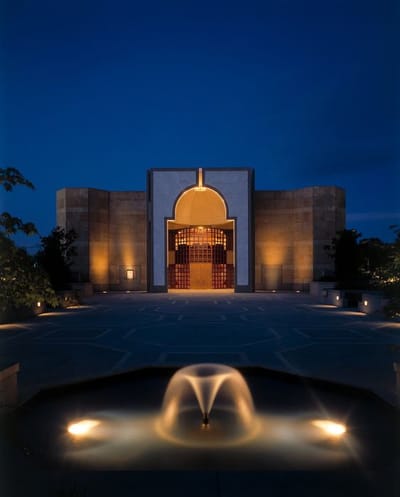This editorial originally appeared in Volume 1 of the print edition of Sacred Web in July 1998
Tradition and modernity are two separate outlooks by which to judge the state of the contemporary world.
By "Tradition" we mean sophia perennis or primordial wisdom, which is not limited to any specific cultural or religious tradition, but which is grounded in the Sacred. Traditionalist writers have distinguished between the terms "contemporary" and "modern", the former designating that which is of the present age, be it traditional or modern, and the latter, when referring to the ethos of “Modernism”, designating, in contrast to Tradition, "that which is cut off from the Transcendent, from the immutable principles which in reality govern all things and which are made known to man through revelation in its most universal sense" (Nasr).
To speak of the contemporary world is to evoke a certain ambivalence. On the one hand, we are the "creatures of our time" and so we celebrate its outward accomplishments, which are for the most part scientific and technological, ranging from the achievements in medical science, to computer technology, to space travel, and to other marvels that almost make us believe, in a Promethean way, that we are gods capable of anything. At the same time we aspire to a social maturity that claims to respect basic rights and freedoms, expressed through various causes of social equity and conscience, ranging from multicultural to ecological. On the other hand, despite the great privileges of our era — which, arguably, confer upon us the equally great responsibility to make use of our gifts according to the sacred trust they imply — we experience a profound malaise that has been termed "the malaise of modernity".
From this modern perspective, wherever mankind turns its gaze, it no longer witnesses "the countenance of the Divine". Instead, it is confronted by a world of increasing fragmentation and spiritual poverty; a world accultured by the hubris of science and the materialistic creed of economic exploitation undertaken in the name of "Progress", which leaves in its wake a myriad of divisions: broken families, an alienated and apathetic society, a pitting of man against nature, and a self divided from Spirit and Intellect. Veiled thus from its celestial origin, mankind in the grip of modernity is without anchor or rudder, buffeted by the storms of its passions. Decentered man, enslaved by his passions, lives in a world assaulted by the seduction of his senses, a world of promiscuity, consumerism, crime, corruption, bigotry, exploitation, disease, overpopulation, famine, environmental degradation, the arrogance of power, the poverty of declining values, a world of increasing complexity and globalization, of augmented alienation and diminished humanity, a universe characterized by the cognitive and ethical relativism of postmodernism, the sclerotic dogmatism of secular and religious fundamentalism, and, in what may be termed the defining feature of Modernism, a loss of the sense of the Sacred.
By contrast, to speak of Tradition is to admit of the Transcendent and thereby to evoke the Sacred. A central premise of Traditional metaphysics is the ultimate integrity of Reality. The goal of Traditional practice is therefore to realize Reality by discerning it, concentrating upon it, and, through self transformation, conforming to it. It is through the faculty of the Intellect (which alone is receptive to the "first principles" of Tradition) that we can discern (or "divine") that which is Real; it is through the submission of the lesser (human) passions to the greater (spiritual) Will that we can hope to merit the grace of ultimate peace and freedom; and it is by rediscovering our spiritual foundation and the trust of sacredness which is our primordial heritage that we can begin to properly address the malaise of modernity.
Sacred Web has been conceived as a journal whose aims will be to identify Traditional "first principles" and their application to the contingent circumstances of modernity, and to expose the false premises of Modernism in the modern world from the perspective of Tradition.
The journal will encourage and invite legitimate debate in this area and will seek to examine the interaction between Tradition and modernity. It is hoped that the journal will be of interest to the Traditionalist and general reader alike, concerned about issues of modernity.


